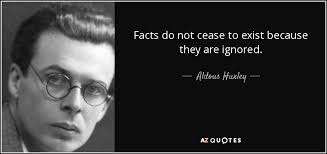
If you will indulge me for one post, this is a diversion from the literal nature to human nature:
Few people think they know more than the ignorant MAGA dude does in line at 711 looking for attention, for someone, for anyone to mark his credibility. These maskless morons cannot be reasoned with, nor can they comprehend large words or complex concepts. Does that sound arrogant? Does this hint of elitism? I don’t care, because at this moment I am going to do something I rarely do: Brandish my three college degrees as well as my expertise in research and verification of sources. And if any of this basic lesson in critical thinking comes across as anything other than a frustrated, highly anxious professor of thirty years who can’t handle the spike in blood pressure when small-brained pricks yell conspiracy, fine.
So to the point, here’s how discourse in this country is supposed to work:
The most important question professors ask of every student who writes a paper, takes an exam, debates an issue, or raises a hand to ask a question is, “Where did you get your information?” The answer to that question determines just how prepared that student is to participate in any discourse. The very notion that “everyone is entitled to their own opinion” is simply not true. An opinion is a “judgement based upon facts.” What everyone is entitled to is their “belief.” And as long as people keep mixing up those two simple concepts, we will have division, dissent, and misleading information.
A simple metaphor: if someone’s stomach is in excruciating pain and they want to know what to do, they ask a doctor, not a plumber, not the guy next door, not the friend in line at the convenience store. No one questions this. But when it comes to issues of constitutional law, of election accuracy, of the rights of individuals to raid a government institution, too many people “believe” they are entitled to their opinion of what should be allowed and what should be questioned and mocked.
It is a simple three step process to insure people know what they’re talking about when they protest or protect, when they prosecute or defend: One, again, “Where did you get your information?” The answer to this question, if done correctly, should be sources whom have advanced degrees and experience in the field discussed—constitutional lawyers, political science researchers—and it should be noted that education and experience are not the same thing. A three-term member of congress does not make that person an expert on anything except what it’s like to be in congress for all that time. An historian, social scientist, or political scientist who has made a career out of investigating the causes and effects of House and Senate activities, studying the experts through the years, and has published extensively, is the source of what works and what does not work.
Two: Because even experts may allow personal beliefs to stand in the way, people who truly know what they’re talking about have multiple, independent sources. No self-respecting expert would dare present results of any investigation, whether into the actions of a president, the accuracy of voting machines, or the validity of an election, without first consulting at least three independent, recognized experts in the field being discussed. Then and only then can a valid judgement be made based upon the most accurate and complete set of facts.
Three: Anyone who is to be taken seriously should have a complete understanding of the opposition’s argument, evidence, and position. To know how anyone reached an opposing opinion is essential if any intelligent discourse is to take place. This allows either side to point out the fallacies of the opposition through prior understanding.
Okay, so what’s the problem? Easy: A fundamental belief that everyone who disagrees with you is lying because they want what’s best for themselves and not for you. The only way to combat such a non-objective belief is to insist those people provide the source of their information so you can better understand how they came to that conclusion. If the answer continues to be “the other side is lying” or “it is a conspiracy,” but never fastens itself to concrete study and research to accurately determine the validity of the evidence, they are participating in a debate they simply are not prepared for, rendering their belief absolutely worthless.

And that is your belief
LikeLiked by 1 person
only a lawyer would think that…
I read all this is Reader’s Digest
LikeLike